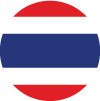The Thai Copyright Act B.E. 2537 was enacted in 1994 and has remained unchanged until 2015. Due to recent developments in technology, it is necessary to modernize the law on copyright to bring it in line with such technological developments.
The amendments to the Copyright Act were introduced and passed by the National Legislative Assembly in 2014. Such amendments were published in the Royal Gazette on 5 February 2015 under two separate bills that were passed into law on the Copyright Act (No.2) B.E. 2558, taking effect from 4 August, 2015 and the Copyright Act (No.3) B.E. 2558 with its effective on 6 April 2015.
The significant amendments under both legislations are summarised as follows:
- Camcording
All unauthorised reproductions of films made in a cinema, even for private use under the “Fair Use” doctrine,is prohibited.The recording of the sound or pictures or both whether in whole or in part during its showing in a cinema is copyright in fringement, without exemption under Section 28/1. It is worthwhile to note that the infringer risks imprisonment for 6 months to 4 years or a fine of THB 100,000 up to THB 800,000 or both.
- Disabled Persons Exception
The new Section 32 (9) allows the reproduction or adaptation of copy righted works for the benefit of disabled person who is not capable of accessing the copyrighted works and this is not considered copyright infringement, provided, however, that such Reproduction or adaptation is on a Fair Use basis, i.e.,for non-profit purposes.
- First Sale Doctrine/Exhaustion of Rights
Section 32/1 recognises an exception of copyright infringement under the first sale doctrine. This section provides that distribution of an original copyrighted work or its copies when copyright ownership is acquired law fully, is not an infringement.
- Temporary Reproduction (RAM Copying)
Under Section 32/2, the making of necessary copies for showing copy righted works on computer which is automatically copied to the computer’s Random Access Memory (RAM) for the system to operate normally does not constitute as a copyright infringement.
- Internet Service Provider’s Liabilities (ISP)
Under Section 32/3, copyright owners have the right to request the Intellectual Property and International Trade Court to order the internet service provider (ISP) to stop unauthorized distribution of copyrighted works in computer system by removal of infringing material from their system. However, if the ISP can prove that they do not control, initiate, or order the infringing act carried out in their system, they will be exempted from liability for copyright infringement, upon compliance with the Intellectual Property and International Trade Court’s order, and will not be liable for any damages granted in the subsequent formal lawsuit.
- Performers’ Moral Right
The performers have the right to identify himself or herself as the performer in their performances. In addition to the right to present himself or herself as the performer, the performers also have the right to prevent anyone, including an assignee of the performer’s rights, from distorting, shortening, adapting, or doing anything else to the performance that would cause damage to the reputation or dignity of the performer. This right has be encodified in Section 51/1.
- Punitive Damages
Section 64 allows the Intellectual Property and International Trade Court to order an infringer to pay punitive damages up to two times the amount of actual and proven damages if such infringement of copyright or performer’s right is committed intentionally or causes the copyrighted work or performer’s right to be widely accessible to the public.
- Seizure and Destruction of Counterfeit Goods
Under Section 75, the Intellectual Property and International Trade Court has an authority to order confiscation ordestruction of the infringing materials at the cost and expense of the infringer. Previously, this Section provided that all things made or imported which infringed copyright or performer’s right which belonged to offender would be surrendered to the copyright owner or performer.
- Right Management Information (RMI)
RMI is defined as information which identifies the creator of work,the work itself, performer, performance, copyright owner, or terms and conditions for copyright use, including a number or code that represents such information. The aforesaid information must be attached or appear to relate to the copyrighted work or the record of performance.
Section 53/1 and 53/2 specifythe civil liability for person who delete or alter of any RMI by realisation that such action would induce, cause, accommodate, or cover an act of infringement of copyright or performer’s right is deemed an act of infringement of RMI as well as importing for distribution or communicating to public of copyrighted works with the knowledge that the RMI of such work has been deleted or modified.
- Technological Protection Measures (TPM)
TPM is defined as technology designed to protect the reproduction or control access to the copyrighted work or record of performance. The abovementioned technology must be effectively used with the copyrighted work or record of performance.
Circumvention of TPM or provision ofthe service for circumvention with the knowledge that such circumvention would induce or cause infringement on copyrighted work or performer’s right is deemed an act of infringement of the TPM.




 THAILAND ADDRESS
THAILAND ADDRESS MYANMAR ADDRESS
MYANMAR ADDRESS